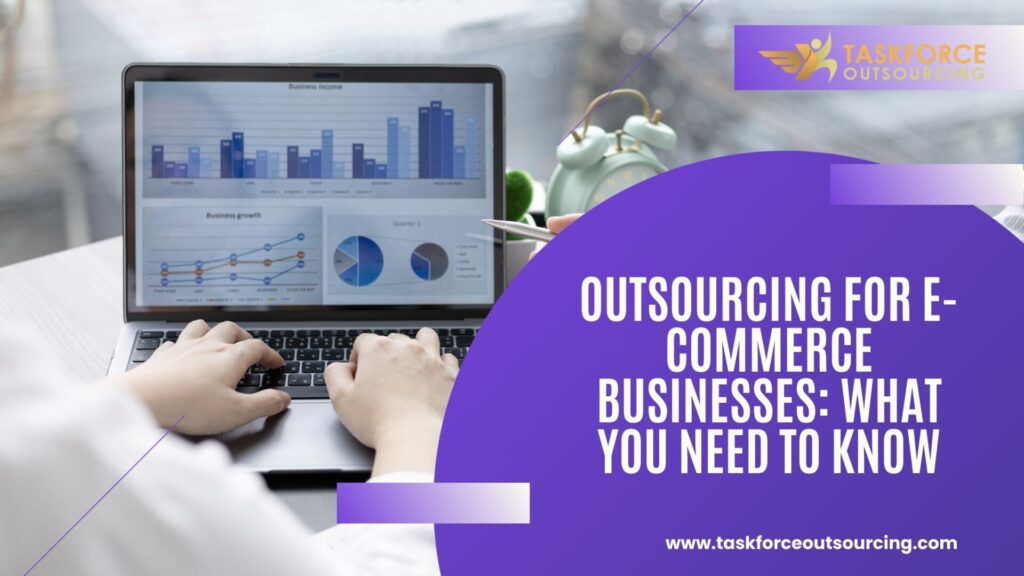In the fast-paced world of e-commerce, businesses are constantly seeking ways to stay competitive and efficient. One strategy that has gained significant traction is outsourcing. By delegating certain tasks to external experts, e-commerce businesses can focus on their core competencies and drive growth. Here’s what you need to know about outsourcing for your e-commerce business.
Cost Efficiency:
Outsourcing can significantly reduce operational costs. Hiring full-time employees for every task can be expensive, especially when considering salaries, benefits, and training. Outsourcing allows you to pay for services only when you need them.
Access to Expertise:
Outsourcing gives you access to a global talent pool. Whether it’s web development, customer service, or digital marketing, you can find experts who specialise in these areas and bring a wealth of knowledge and experience to your business.
Scalability:
As your business grows, your needs will change. Outsourcing provides the flexibility to scale services up or down based on demand without the hassle of hiring or laying off staff.
Companies offer excellent accuracy and efficiency, allowing companies to efficiently handle data while concentrating on their primary skills. Businesses may boost decision-making, expand operations, and achieve better operational performance by taking advantage of outsourcing partners' skills.
Focus on Core Activities:
By outsourcing non-core activities, you can focus on what you do best. This could be product development, strategic planning, or customer engagement. Outsourcing administrative tasks, for example, frees up your time to concentrate on growing your business.
What to Outsource?
Customer Service
Providing excellent customer service is crucial for e-commerce success. Outsourcing customer support to specialised agencies can ensure your customers receive timely and professional assistance.
Order Fulfilment
Managing inventory, packing, and shipping can be time-consuming. Outsourcing order fulfilment to third-party logistics providers can streamline these processes and improve efficiency.
Digital Marketing
From SEO to social media management, digital marketing requires specialised skills. Outsourcing to marketing agencies can help you implement effective strategies and stay ahead of the competition.
IT Services
Maintaining an e-commerce platform requires technical expertise. Outsourcing IT services can ensure your website runs smoothly, is secure, and stays updated with the latest technologies.
How to Choose the Right Outsourcing Partner
Define Your Needs
Clearly outline the tasks you want to outsource and the outcomes you expect. This will help you find a partner who aligns with your business goals.
Research and Vet
Look for outsourcing partners with a proven track record. Check reviews, ask for references, and evaluate their expertise in your industry.
Communication
Effective communication is key to a successful outsourcing relationship. Ensure your partner is responsive and understands your business needs.
Cost vs. Value:
While cost is an important factor, it shouldn’t be the only consideration. Focus on the value and quality of services provided to ensure you get the best return on investment.
Conclusion
Outsourcing can be a game-changer for e-commerce businesses, offering cost savings, access to expertise, and the ability to focus on core activities. By carefully selecting the right outsourcing partners and clearly defining your needs, you can leverage outsourcing to drive growth and success in your e-commerce venture.
Frequently Asked Questions (FAQs)
A: Outsourcing in e-commerce refers to contracting external companies or freelancers to handle specific business functions or processes that your internal team may not specialise in. This can include areas such as customer service, order fulfilment, marketing, IT support, and accounting. The aim is to leverage external expertise and resources to enhance efficiency and focus on core business activities.
A: Common tasks that e-commerce businesses outsource include:
- Customer Service: Handling customer inquiries, complaints, and support through various channels.
- Order Fulfilment: Managing warehousing, packing, and shipping of products.
- Digital Marketing: Running online advertising campaigns, SEO, social media management, and content creation.
- IT and Technical Support: Maintaining website performance, cybersecurity, and technical troubleshooting.
- Accounting and Bookkeeping: Managing financial records, tax preparation, and financial reporting.
A: To choose the right outsourcing partner, consider the following factors:
- Experience and Expertise: Look for partners with proven experience in the specific area you need help with.
- Reputation: Check reviews, testimonials, and case studies to gauge the partner’s reliability and success.
- Cultural Fit: Ensure that the partner’s values and communication style align with your business culture.
- Scalability: Choose a partner who can scale their services as your business grows and adapts to changing needs.
A: An outsourcing contract should include:
- Scope of Work: Detailed description of the tasks and services to be provided.
- Deliverables: Specific outcomes or products the partner is expected to deliver.
- Timelines: Deadlines and schedules for project milestones and deliverables.
- Performance Metrics: Key performance indicators (KPIs) to measure success and performance.
- Confidentiality and Data Security: Clauses to protect sensitive information and ensure compliance with data security protocols.
- Terms and Conditions: Payment terms, dispute resolution procedures, and termination clauses.
A: To ensure quality in outsourcing, you can:
- Implement Quality Control Processes: Regularly review and assess the work produced by the outsourcing partner.
- Set Clear Expectations: Communicate your standards and requirements upfront and ensure they are documented in the contract.
- Monitor Performance: Use established KPIs and gather feedback to evaluate the partner’s performance and address any issues promptly.


